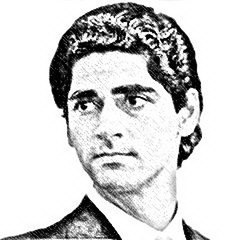Pakistan often believes it is a 5000-year-old civilization. That is no truer than a baby born in an old house, calling itself old. It is not. Modern day Pakistan has been ruled more or less by foreign powers for centuries. First came the Persians, then the Afghans, then the Moguls and finally the British. It was not until 1947 that Pakistan and its inhabitants truly became their own masters. Making Pakistan, relative to its counterparts, an infant. Like all infants more than anything, it requires parenting if it to survive the world.
Unfortunately for Pakistan, its forefather died a year after its inception leaving it without a successor or a constitution. After independence the US was governed for twenty-eight years by Presidents who wrote, influenced or signed it’s constitution. Lee Kuan Yew, the founder of Singapore served as its Prime Minister for almost thirty years. Mustafa Kamal Attaturk, founder of modern-day turkey died as president. An office he held for thirteen years.
The lesson is that any new nation needs to be stabilised and its core values properly institutionalized by its revered forefathers if it is to succeed. Pakistan however was orphaned almost immediately with an uninstalled soul. Except this time no Emperor or Sultan was going to fill that void. This time it was on its own.
The importance of a national identity for national prosperity is immense. The question now remains how to achieve it. The short answer is that there are two relevant and successful precedents. Turkey and The United States
It is now imperative for those at the helm of the affairs that citizens look towards as a child looks towards its parents to raise Pakistan towards the nation that it could be, rather than just governing it as is.
They must first decide what exactly is Pakistan; a mammoth task that most leaders shy away from. A s a result of continual ambiguity on the matter Pakistan struggles with an identity complex. It was made by the marginalized Muslim minority of India who wanted to create a sanctuary for all but behaved dismally once in majority. Pakistan was supposed to be constitutionally secular but religious elements constantly compete with, clash with, and often supersede the State’s laws.
Pakistani people are equally bewildered. They endlessly fluctuate between multiple identities; provincial, kinship, sectarian, social class etc. They’re often undecided on which of their sub identities overrides others. The Baloch resent Punjabis, Sunni scholars dismiss Shia beliefs, Jatts don’t vote for Arains. In Karachi Urdu speaking Muhajirs violently clash with ‘muhajirs’ from KP. The rich don’t marry the poor and so fourth. These are symptoms of a nation not yet whole.
A State is meant to be better than the sum of all its parts. Over time these challenges have not and will not vanish because the State is failing to create a formal Pakistani identity for its citizens. And until that happens the near infinite consequences of that vacuum will remain.
If one travels to Murree in the summer, they will witness this quaint tourist town littered with garbage. There is no concept of civic responsibility to keep it clean. The ruthless deforestation in all provinces and heartless dumping of chemicals into rivers is another example. Negligence of national heritage sights from Taxila to Thatta is yet another heart-breaking example of failure to form a national identity that would consider such actions as sacrilegious.
Cricket is perhaps the single most unifying activity in Pakistan. Yet, national players have been accused of everything from underperforming because of late-night partying to throwing matches.
The importance of a national identity for national prosperity is immense. The question now remains how to achieve it. The short answer is that there are two relevant and successful precedents. Turkey and The United States.
In the aftermath of WWI Turkey had to reinvent its self from the Ottoman Empire’s debris. Atatürk modernized Turkey to be a secularly constituted democracy. Aroman alphabet was invented to replace the Arabic one. Religious institutions were leashed and all resistance was thwarted. Essentially they chose which model would endure the new world and hammered it into existence.
The United States had a less intense and proactive approach. It was built primarily by European immigrants who sailed to the ‘New World’ to improve their economic circumstances. The pursuit of the ‘American dream’ naturally evolved the population towards a unified direction. It also acted as a ‘melting pot’ that disseminated its population’s prior affiliations along the way.
Pakistan would do well to combine both. Like Turkey the state should be pre-emptive and decisive in implementing its national vision. How they reigned in religious institutions and obligated it to coexist with the government is particularly noteworthy. Since early America was similarly heterogeneous, Pakistan should pursue a strong economy because nothing allows a diverse nation to blend and develop like prosperity. A precursor to all this would be a dependable education system of course.
The harsh reality is the nation Jinnah and Allama Iqbal envisioned did not pan out. Too much has happened since 1947. Too much has gone wrong. Pakistan has deviated far from the initial plan. Their memory and literature can still guide it into forming an identity but not without concrete and coherent efforts by the State. At the moment Pakistan is not a nation, it is two hundred and twenty million people trapped inside a boarder. It is time to grow up and become something more.
The Author is a freelance writer, and currently researching a book on Nationalism
